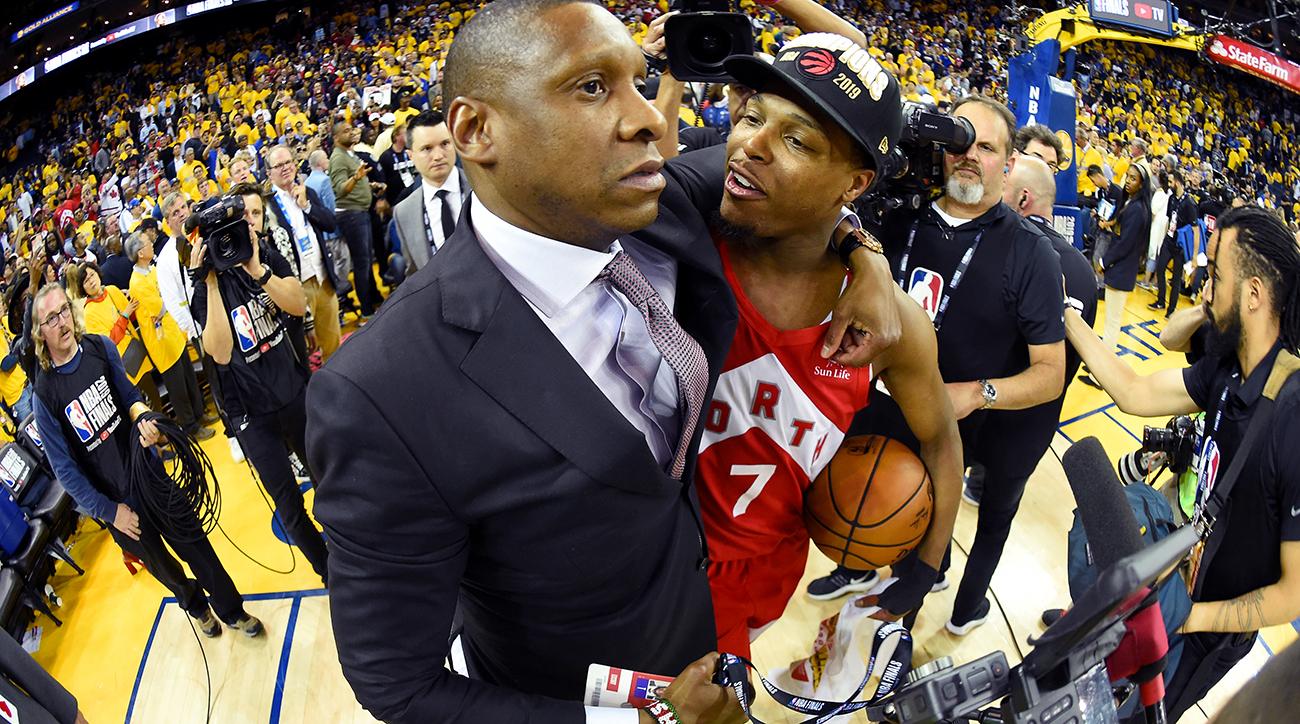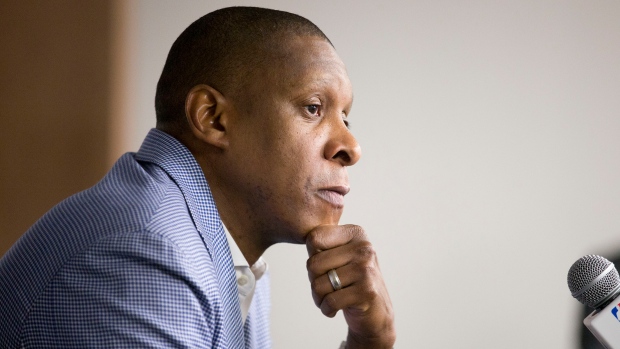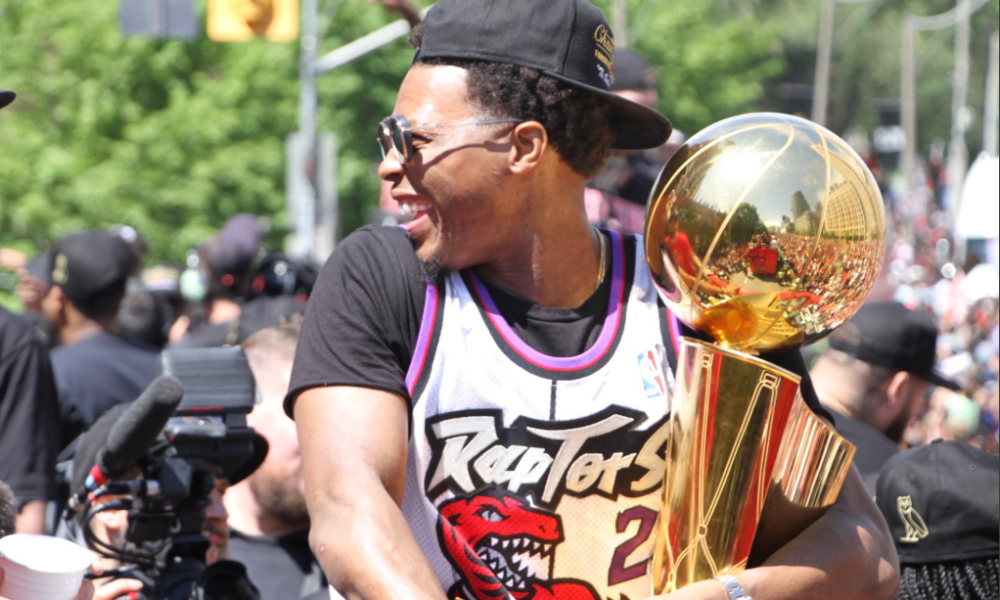When the Toronto Raptors won their first NBA championship on Thursday night, destiny prevailed. As the Raptors battled through adversary and proved to be the best team in the NBA, beating the dynastic Golden State Warriors in six games, the Raptors organization and basketball in Canada triumphed. Days later, the city of Toronto is still buzzing and new basketball fans are popping up throughout the country. All is good for the Raptors, the NBA, and basketball in Canada. Or is it?
People often turn to sports in moments of stress or anxiety as a way to take a break from the problems that plague real life. Others simply enjoy sports as a communal activity: something that brings together friends and family. Either way, sports are too often seen as something separate from the real world; a utopia that exists for our viewing pleasure.
The 2019 NBA Finals reminded us that sports are no utopia, bringing to life several important issues that have always existed in sports but are barely dissected in sports media. Whether it was Masai Ujiri being carded on his way to celebrate a championship with the team he built, Kevin Durant being cleared to play despite not being 100 percent healthy, or the Raptors fans booing him when he went down, there was no shortage of incidents and mistakes made throughout the 2019 NBA Finals. And these instances — unlike the Warriors investor pushing Kyle Lowry or the shooting during the championship parade — are not just one-off mistakes made by “a couple of bad apples”: they are examples of systemic racism, athlete exploitation, and toxic fandom that are deeply ingrained in the culture of sports. We must learn from the 2019 NBA Finals in order to create a more positive environment for athletes and fans moving forward.
Racism
After the final buzzer sounded in game 6 of the NBA Finals in Oracle Arena, Toronto Raptors President of Basketball Operations Masai Ujiri made his way from the tunnel to the court to celebrate the championship with the team he built. As he approached the court, Ujiri was carded — or asked to present proper credentials — by a deputy of the Alameda County Sheriff’s Office, who wouldn’t allow Ujiri to pass. Although the exact sequence of events is still unclear, according to spokesperson Sgt. Ray Kelly, Ujiri allegedly shoved the officer and then shoved him again, striking him in the jaw the second time.
#BREAKING: Sheriff's deputy reportedly pushed and struck in the face by a man believed to be a Toronto Raptors executive after Game 6 of the #NBAFinals at Oracle Arena, @ACSOSheriffs says. https://t.co/fobdK9iWEq pic.twitter.com/a4X0IysY5Z
— Kristofer Noceda (@krisnoceda) June 14, 2019
That version of events has been disputed by several eyewitnesses, though, who claim that Ujiri not only had his credentials in his hand, which is backed up by video of Ujiri in the tunnel and during the altercation, but also that it was the deputy who put hands on Ujiri first. Greg Wiener, a Warriors season ticket holder standing near the altercation, tweeted: “Ujiri was pulling out his NBA Pass, the cop did not see badge he put his hands on Ujiri to stop him from going forward. The cop pushed Ujiri, then Ujiri pushed back. Cop was wrong.” The sheriff’s office in question also has a history of using excessive force and racial profiling.
Although it is dangerous to jump to conclusions before knowing all the facts, it seems pretty clear that this was a case of racial profiling in which a white deputy didn’t believe a Nigerian man was in charge of the basketball team that just won the world championship. Leo Rautins, a Raptors announcer who was working the game, said, “There is no way this isn’t a racial profile at best. I did a fast walk by security and no one cared. Masai was with his security, and team personnel, who all have credentials.”
What is just as disturbing is how this incident was covered by the media. We expect the American media to create clickbait headlines that are often inaccurate or one-sided, but just about every Canadian news service (including Globe and Mail, CBC, and National Post) generated headlines that Ujiri was “accused of assault.” All were based on wire news from Adam Burns of the Canadian Press, and Sgt. Kelly was the lone voice quoted in the original story, which concluded by claiming that the deputy took the “high road” by not arresting Ujiri right then and there. It was later announced that the deputy may file a lawsuit against Ujiri.
The sad reality is that if you are black, no matter how much perceived power you have, people will still try to bring you down. Another sad reality is that white people are still uncomfortable with Black people in positions of power, and that is especially true in the world of sports, which is dominated by white men. Yet people will still call it a reach to label this altercation as racism and racial profiling despite all the evidence pointing in that direction.
As Andray Domise wrote in Macleans, “What should have been the proudest moment of Ujiri’s life, and should have been a moment of unadulterated joy for Raptors fans, became yet another footnote in the body of evidence on racial profiling.”
Exploitation and internal pressure
From the moment Kevin Durant went down with a reported calf injury during game 5 of the Western Conference semifinal between the Golden State Warriors and the Houston Rockets, the Warriors handled the situation poorly. The team called it a mildly strained calf, which usually takes 7-10 days to recover from, and were unclear with what Durant’s rehab timeline might look like, continuously delaying his return but also publicly declaring it inevitable.
Durant should have never been cleared to play in game 5 of the NBA Finals. I’m not a doctor, but it doesn’t take one to know that Durant wasn’t anywhere near 100 percent healthy as evidenced by the fact that it took one simple move — a move Durant has pulled off thousands of times in his career — for him to tear his Achilles in the same leg as his calf injury. One of the best players in the world — and one of the best all time — will sit out the next 12 or more months of his prime due to a culture of athlete exploitation that pressured him to come back too soon.
Why did Durant come back before his body was 100 percent? Well, a hierarchy exists in professional sports franchises where athletes don’t come first despite being the reason fans watch on TV and buy tickets to fund these organizations. There are weak, if any, regulations regarding when a player can return from injury in the NBA and within organizations, and teams across professional sports allow players to come back too soon as long as it benefits the team rather than the long-term health of the player.
The Warriors, an organization that has been viewed as the gold standard of the NBA this decade, put themselves ahead of Durant. Maybe they misdiagnosed KD, as Jay Williams claims, saying, “[The calf injury] unloaded the pressure on the Achilles. [They said] there was no chance the Achilles could be injured at all. For that to happen in the first half of a ball game, I can’t fathom that.” Maybe they played him too much, electing not to put a minutes limit on him and allowing KD to play 12 of the first 14 minutes despite him not playing basketball for over a month beforehand. And maybe some of the onus should be on Durant, who succumbed to the pressure of reports that the Warriors were “frustrated” that he didn’t play game 4 and the media calling him “soft” and accusing him of not caring about the team.
But one thing is for certain: Durant would not have played if the Warriors were leading the series 3-1 instead of trailing 1-3, and he probably wouldn’t have been cleared to play if he gave the Warriors a guarantee that it wouldn’t be his last year with the team. But organizations across sports exploit athletes with little to no repercussions.
Hopefully, Durant’s injury can be a watershed moment for how sports franchises treat injuries and protect the players who are responsible for their successes.
Toxic fandom and external pressure
Although the Warriors and KD should take the brunt of the blame for the Durant injury, fans of the sport should also wield some responsibility.
This is a wonderful take by Jalen Rose on the Kevin Durant injury/situation. pic.twitter.com/sOvNz3pSfQ
— Kory Waldron (@KWalHoops) June 11, 2019
There is a culture in sports that pressures athletes to play through pain, to be tough, and to put the team ahead of themselves. A lot of that pressure comes from fans, who place the team they grow up cheering for on a pedestal, and the athlete who plays for them comes second. But what us fans often fail to realize is that what is purely entertainment for us represents much more for the athletes. Players like Durant put their bodies and bank accounts on the line when they play, and injuries don’t only affect them, they affect their families and friends, too.
That’s why when Durant suffered his injury against the Raptors, and fans across Toronto cheered, it wasn’t just “a few bad apples” like many people claimed. It was the deeply embedded toxic aspect of sports fandom coming out for all the world to see. We are taught that our team’s success comes above all else, and when Durant went down, Toronto fans realized they were one step closer to winning a championship, and a lot of peoples’ initial reaction was to cheer. That doesn’t necessarily make those who cheered bad people, but it does say a lot about the culture of fandom and the relationship between fans and athletes.
As DeMarcus Cousins put it after the game:
“We’re only idolized as superstar athletes, not human beings. It’s always about what we can do between those lines. That’s it. That’s all that ever matters. And then once we lash out and do human-type things, then we’re considered bad guys.”
As fans, we need to realize that athletes are human beings and should be treated as such. Just because we watch for our entertainment doesn’t mean athletes don’t play for much, much more. Fandom has had toxic qualities for as long as sports have existed, but that doesn’t mean we can’t critique our behaviour and try to improve in the future.
Moving forward
The 2018-19 Raptors helped produce hundreds of thousands of new NBA fans: ones who may not have enjoyed basketball or even sports beforehand. But being a fan comes with responsibility.
This championship run was great for a number of reasons, but let’s not pretend it was all peaches and cream. There were a number of incidents that brought real, systemic issues to light — issues like racism, athlete exploitation, and toxic fandom — and it is our responsibility as fans to improve the culture of sports going forward. It is our responsibility to demand more from ourselves and from the franchises and leagues we cheer for.
The world of sports, just like the world outside of it, is never going to be perfect. But that doesn’t mean we shouldn’t strive for the same kind of greatness that we ask of our athletes. Was the 2019 NBA Finals good for Toronto, Canada, and the NBA? Yes. Can we do better? Absolutely.



